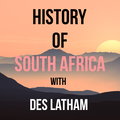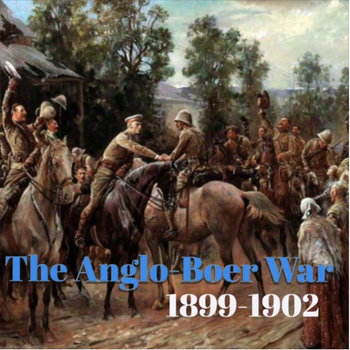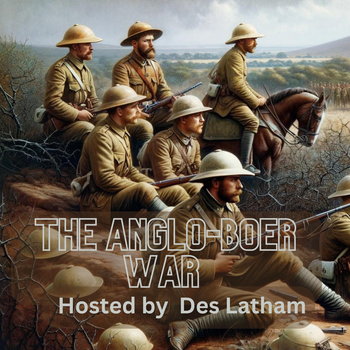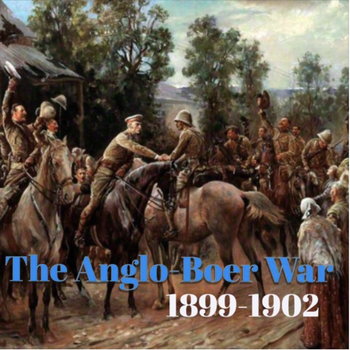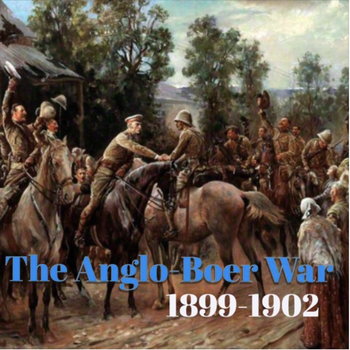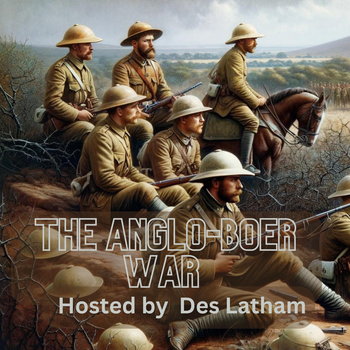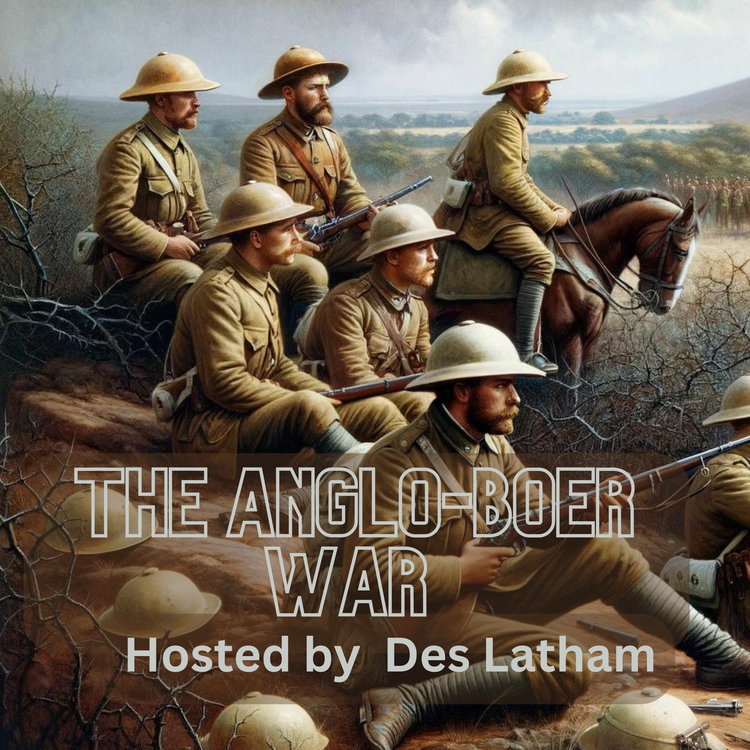
Episode 65 - Mark Twain barks at Churchill as Reitz shoots a British soldier with a dumdum
Loading player...
On 12th December 1900, and in the United States, Winston Churchill was about to deliver a lecture about his experiences as a war reporter in South Africa, covering the Anglo-Boer War.
Exactly a year earlier to the day on 12th December 1899, he’d escaped from a Boer prison in Pretoria, now he was standing in the Grand Ballroom of the Waldorf Astoria in New York.
It was the haunt of the rich and famous. And for once, Churchill was nervous because he was being introduced by the great author, Mark Twain who was staunchly opposed to imperialism and at 65 with his shock of unruly white hair, Twain generally spoke his mind without fear or favour.
Churchill was aware this could be a difficult evening. He had sailed from Britain after winning a seat in parliament for Oldham in the khaki election in October 1900, and now sought to grow his influence further afield by going on the American lecture circuit.
He also needed cash to fund his political career.
The show came with slides and what was known at that time as a magic lantern, an early form of slide projector, which projected images on a screen while Churchill spoke. He could do the lecture in his sleep, his oratory skills already sharpened. Churchill had presented this lecture 29 times before in every large British City, starting immediately after the elections on 30 October in St James’ Hall in London.
Evening after evening except Sundays he addressed large halls full of an adoring public. Churchill had made a tidy sum out of the British lecture circuit because at that time, Members of Parliament received no remuneration. So he knew that he needed a war chest for politics, and what better way than to talk about a war with a multimedia show thrown in?
Back in South Africa, the so-called bandits were about to deal General Clements another blow in the Magaliesberg Mountain range which lies west of Pretoria and Johannesburg.
Remember last week Jan Smuts and Koos de la Rey had ambushed a large relief convoy and either seized or destroyed 118 wagons on the road to Rustenburg through the mountains.
As I said, that was merely a precursor to a much more violent confrontation on the 9th December at a place called Nooitgedacht. loosely translated, it means Never Daylight.
The success of the ambush had whetted Smuts and de la Rey’s appetite for bigger game.
General Clements was that bigger game. He was a bull-necked Englishman who had done well in recent weeks in corraling the Boers and protecting the main routes out of Pretoria to the West. Towns like Rustenberg and Mafikeng lay along that route, and it was important to keep the road open to Bechuanaland, modern day Botswana.
But one mistake changed all that. Smuts wrote later that General Clements had selected a terrible spot to bivouac his troops.
“I do not think” Smuts said “it was possible to have selected a more fatal spot for a camp and one which gave better scope for Boer dash and ingenuity in storming the position..”
There were shear walls one one side of a thousand feet, rearing over Nooitgedacht to the north and commanding the entire valley. Nooitgedacht, roughly translated, means NEVER DAY which gives you an idea about just how nestled this valley was - and how prone it oculd be to attack if you failed to control the high ground.
Clements had two reasons to choose this site and neither had anything to do with defence. First, he need to place a signalling station on the summit of the large mountain in order to send messages to Rustenberg 35 kilometers away in the shimmering plain to the north west.
The second reason was more prosaic - there was a magnificent mountain stream at Nooitgedacht which plunged down a series of waterfalls. This meant clean and clear water for this men as they camped.
Exactly a year earlier to the day on 12th December 1899, he’d escaped from a Boer prison in Pretoria, now he was standing in the Grand Ballroom of the Waldorf Astoria in New York.
It was the haunt of the rich and famous. And for once, Churchill was nervous because he was being introduced by the great author, Mark Twain who was staunchly opposed to imperialism and at 65 with his shock of unruly white hair, Twain generally spoke his mind without fear or favour.
Churchill was aware this could be a difficult evening. He had sailed from Britain after winning a seat in parliament for Oldham in the khaki election in October 1900, and now sought to grow his influence further afield by going on the American lecture circuit.
He also needed cash to fund his political career.
The show came with slides and what was known at that time as a magic lantern, an early form of slide projector, which projected images on a screen while Churchill spoke. He could do the lecture in his sleep, his oratory skills already sharpened. Churchill had presented this lecture 29 times before in every large British City, starting immediately after the elections on 30 October in St James’ Hall in London.
Evening after evening except Sundays he addressed large halls full of an adoring public. Churchill had made a tidy sum out of the British lecture circuit because at that time, Members of Parliament received no remuneration. So he knew that he needed a war chest for politics, and what better way than to talk about a war with a multimedia show thrown in?
Back in South Africa, the so-called bandits were about to deal General Clements another blow in the Magaliesberg Mountain range which lies west of Pretoria and Johannesburg.
Remember last week Jan Smuts and Koos de la Rey had ambushed a large relief convoy and either seized or destroyed 118 wagons on the road to Rustenburg through the mountains.
As I said, that was merely a precursor to a much more violent confrontation on the 9th December at a place called Nooitgedacht. loosely translated, it means Never Daylight.
The success of the ambush had whetted Smuts and de la Rey’s appetite for bigger game.
General Clements was that bigger game. He was a bull-necked Englishman who had done well in recent weeks in corraling the Boers and protecting the main routes out of Pretoria to the West. Towns like Rustenberg and Mafikeng lay along that route, and it was important to keep the road open to Bechuanaland, modern day Botswana.
But one mistake changed all that. Smuts wrote later that General Clements had selected a terrible spot to bivouac his troops.
“I do not think” Smuts said “it was possible to have selected a more fatal spot for a camp and one which gave better scope for Boer dash and ingenuity in storming the position..”
There were shear walls one one side of a thousand feet, rearing over Nooitgedacht to the north and commanding the entire valley. Nooitgedacht, roughly translated, means NEVER DAY which gives you an idea about just how nestled this valley was - and how prone it oculd be to attack if you failed to control the high ground.
Clements had two reasons to choose this site and neither had anything to do with defence. First, he need to place a signalling station on the summit of the large mountain in order to send messages to Rustenberg 35 kilometers away in the shimmering plain to the north west.
The second reason was more prosaic - there was a magnificent mountain stream at Nooitgedacht which plunged down a series of waterfalls. This meant clean and clear water for this men as they camped.
